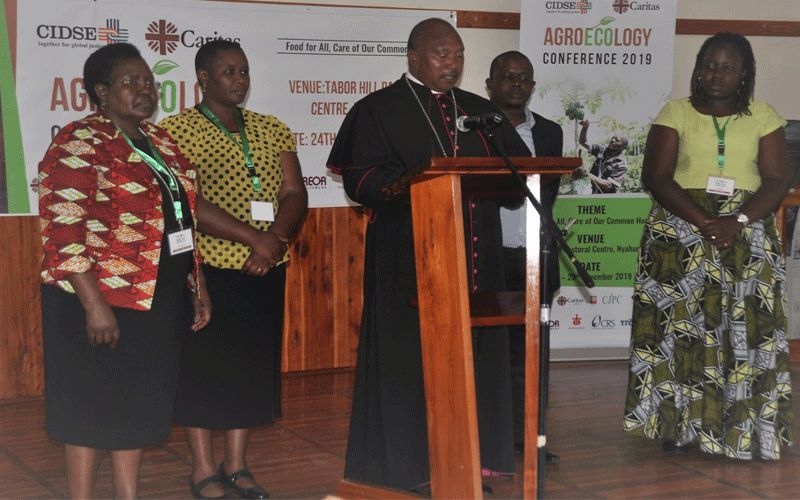“We resolve to utilize the energy, creativity and skilled task force of the youth,” participants in the multi-agency conference resolved referencing the Holy Father’s call, in his Post-synodal Exhortation to young people and the entire people of God “Christus Vivit”, where Pope Francis “encourages the Christian community to involve the youth through our embrace and concrete help.”
Convened under the theme “Food for all, care of our common home,” the participants who came from Kenya, Uganda, South Sudan, Ethiopia and Malawi recognized the value of engaging the traditional and digital means of communication and resolved to “work closely with actors in mainstream media and other platforms such as social media to promote agroecology.”
“We are committed to promote Agroecology farming as a means to enable farmers to increase their produce,” the multi-agency forum resolved.
Food and Agricultural Organisation (FAO) has described agroecology as “an integrated approach that simultaneously applies ecological and social concepts and principles to the design and management of food and agricultural systems.”
The participants resolved to embrace agroecology farming by “investing more resources in the market section of the value chain, supporting agroecological annual market days and promoting networks to encourage aggregation and bargain for better prices on farmers' produce.”
“We further resolve to document indigenous knowledge on agroecology for information sharing,” the participants in the conference have stated in their collective communique.
Planned by the umbrella organization for Catholic development agencies from Europe and North America (CIDSE) and Caritas Africa, the participants resolved to spearhead “the capacity building of partners on agroecology and advocacy,” and to “facilitate access to water and support the establishment of seed banks through collaboration with households, community groups and other institutions.”
They also reached out to Bishops in Africa, urging them to “take a lead on advocacy on agroecology with a focus on food safety and security at national and county levels.”
Speaking about his impressions as a participant in the conference, the director of Caritas and the Catholic Justice and Peace Commission (CJPC) in Kenya’s Kisumu Archdiocese, Fr. Samuel Nyattaya told ACI Africa, “The nature, the amount, and the frequency, of chemical usage in our farms (small scale, medium scale, or large scale) can be so shocking. If we are to remain obedient to the Catholic Social Teachings especially Laudato Si’, we must propagate agroecology; we must use our platforms – and they are many – to enlighten the people or else they will (sadly) continue dying for lack of knowledge.”
“The conference has been very informative, as the County of Isiolo we have been working on climate change policies and it's something that influences our food security aspects,” Lamech Onyari who is the monitoring and evaluation officer of Kenya’s Isiolo diocese told ACI Africa.








